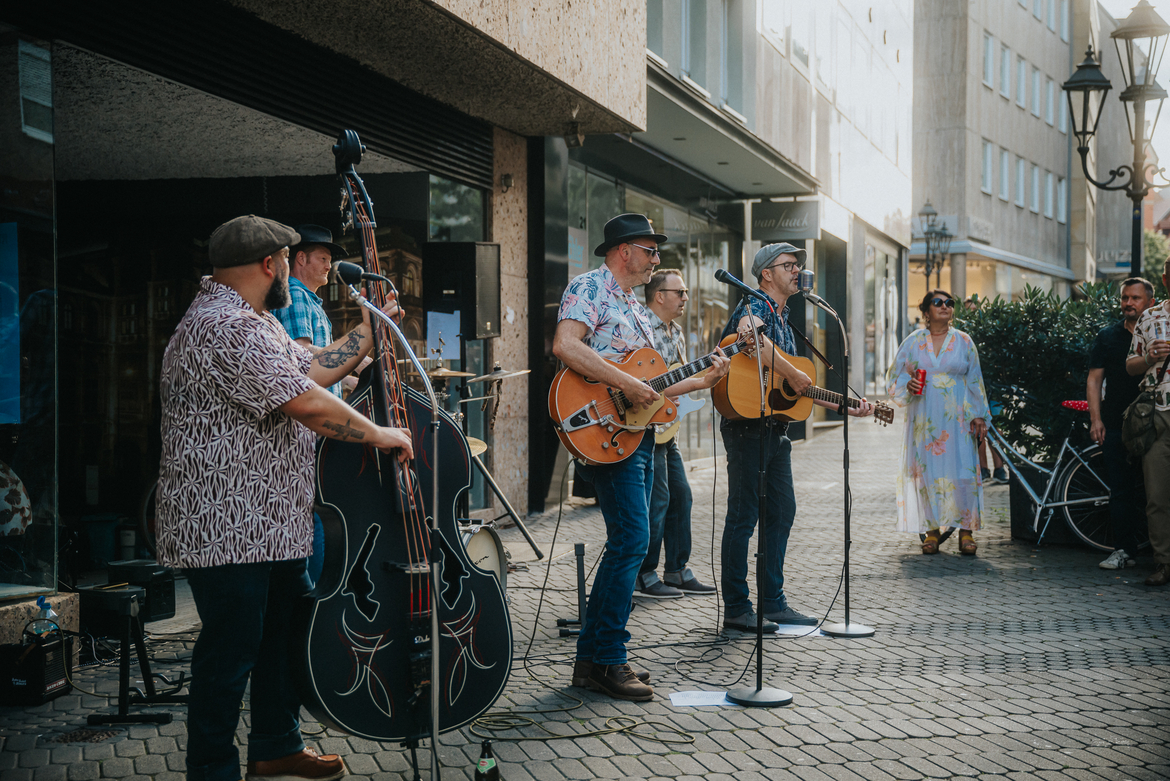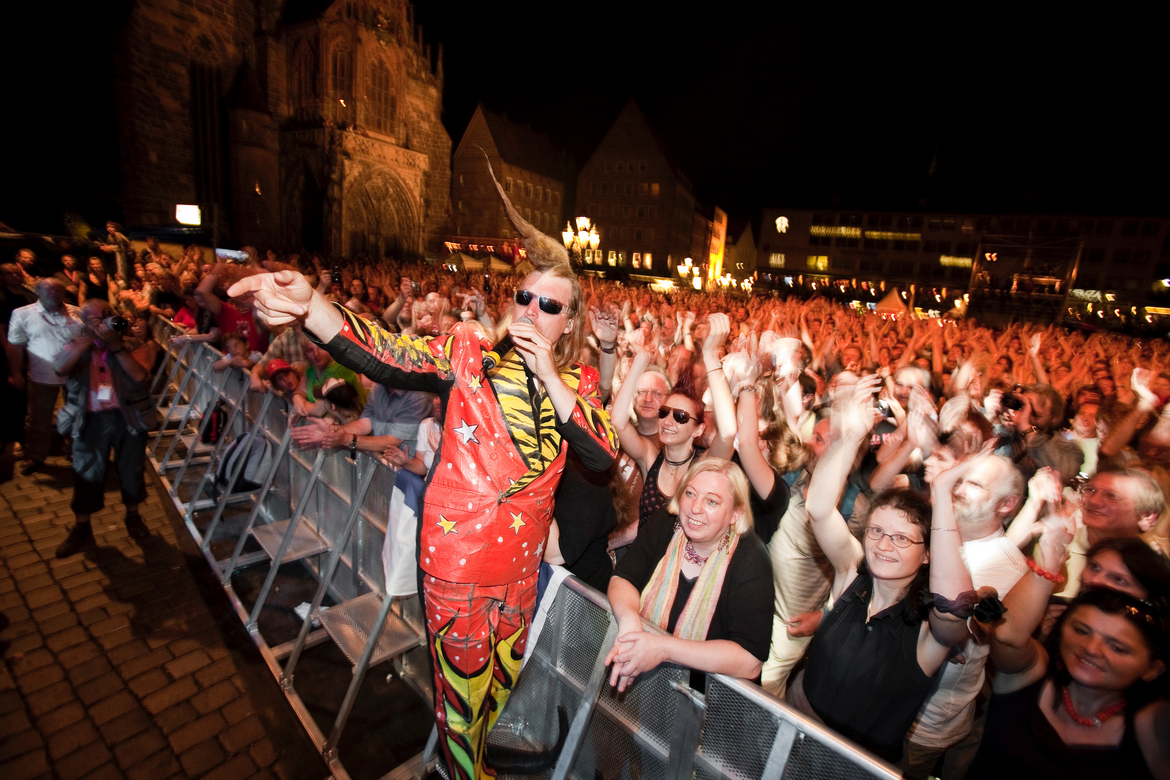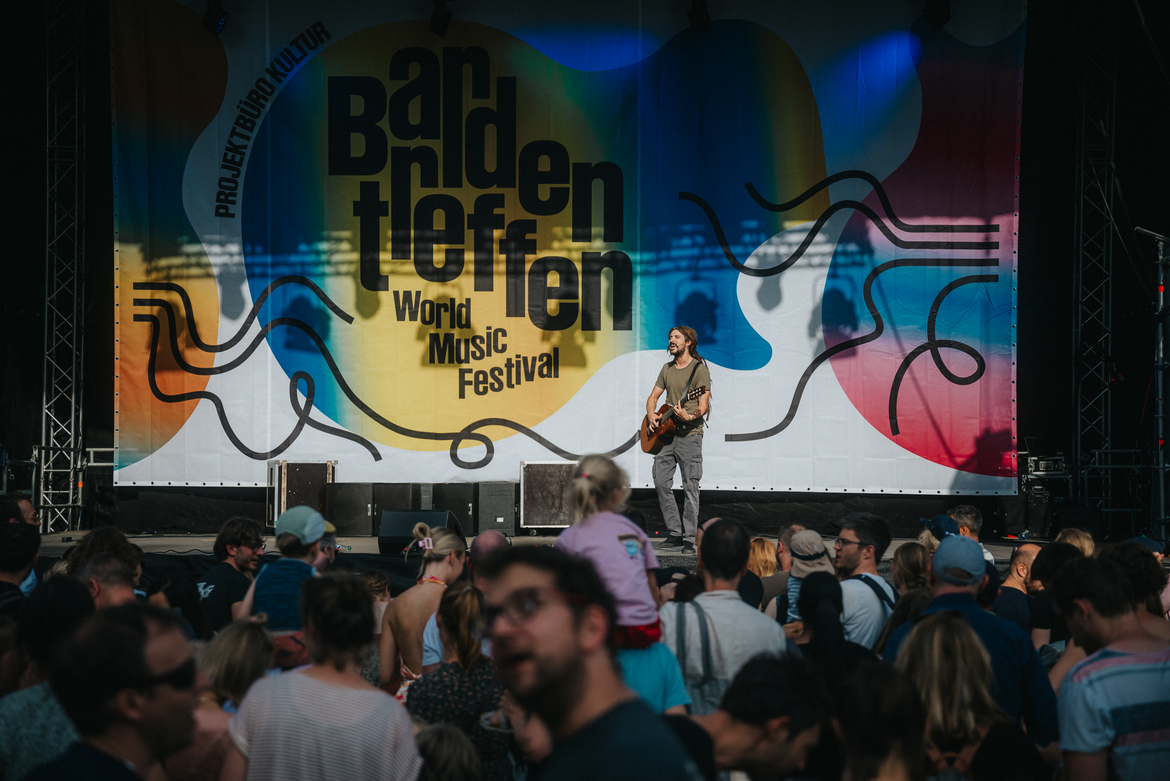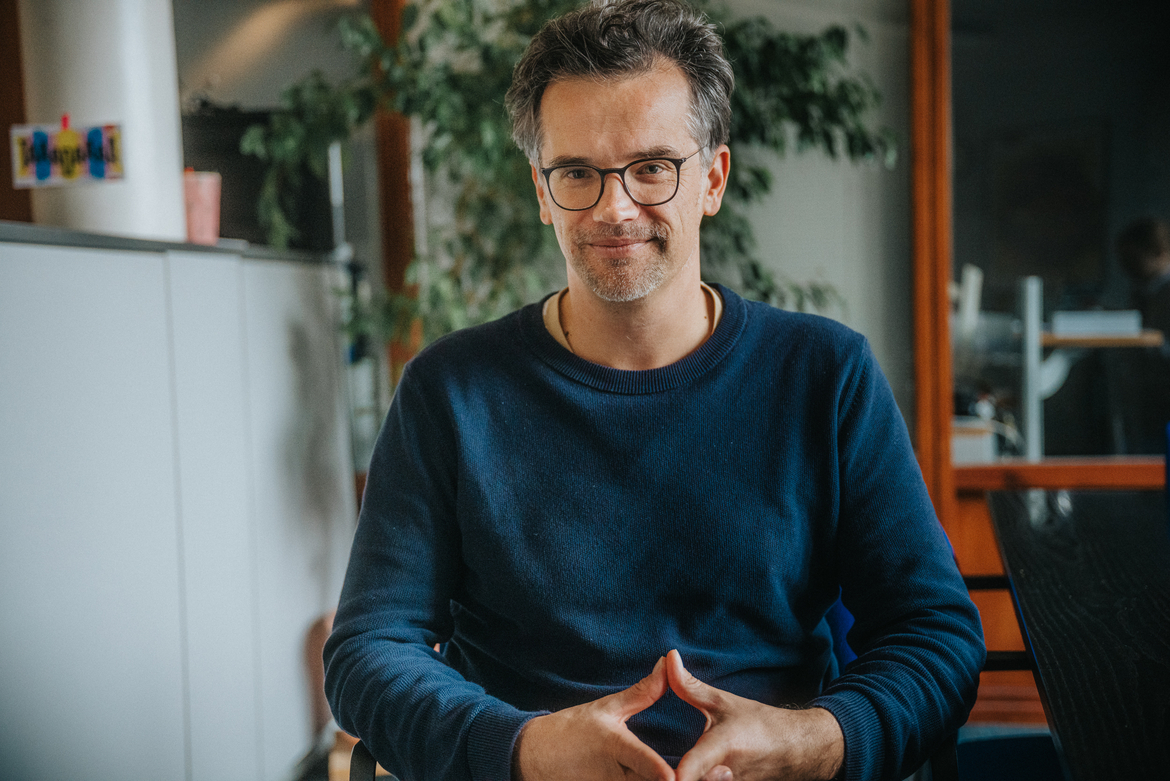The Bardentreffen: Brings World Music to Nuremberg
The respected music festival is not only a yearly highlight for the people of Nuremberg and guests from all over the world, but also for national and international singer-songwriters and musicians of all types. For them – whether a legend of world music or a relative newcomer – the Bardentreffen offers a stage. The team of the Project Office works to assure a successful run of the event. We spoke to festival director Rainer Pirzkall about the music world, world music and the special characteristics of this Nuremberg festival classic.
Rainer, the first Bardentreffen took place in 1976 – what has changed since then?
"Some things have changed since the first Bardentreffen, but much has stayed the same. The yearly music contest has become a festival – no competition anymore, only music that should united people. Its singer-songwriter roots, from which the Bardentreffen came, have still remained. Then as now stages are scattered all over the city, so that Nuremberg can be completely filled with music. And another thing hasn’t changed: Admission to the concerts, no matter how known or unknown the performing group is, is still free-of-charge."
And who are these bards?
"The name Bardentreffen comes from the bards – traditional story tellers, songwriters and poets – who in the Middle Ages and Early Modern Times played an important cultural role in many places. With their musical stories, they helped preserve tradition, legends and historical events. The Bardentreffen offers musicians space to tell stories with their songs, speak about social themes and thereby create a strong tie to their listeners."

Street musicians or stage performers, what is the difference?
“The street music spirit makes the Bardentreffen special. Yet the carefully crafted stage program is not any less important in creating its individuality. Every year there is a new special motto, mostly topics that reflect the current Zeitgeist and inspire you to reflection. Music helps to break down cultural barriers and prejudices. That is exactly that for which the Bardentreffen stands. The world are guests in Nuremberg, the city of human rights, united through music. It is moving when music fills the entire city. The mood during the Bardentreffen is difficult to describe to someone who hasn’t been here. It almost feels like a utopia. People come together, celebrate, pause: Peacefully, tolerant, open and positive. The official stage program is created from thousands of mails from ambitious groups or their agents and in cooperation with music associations. The street music isn’t curated and thereby retains its own charm. Anyone can play who feels as if they should – regardless of ability.”
What does your work look like? And do you have any tips for us?
"The Bardentreffen only lasts three days, but the preparations take almost a whole year. When you feel the magic of the music, music that is conveyed to the listeners and captures them, that is the payback for all the stress, again and again. And when pictures from Nuremberg go around the entire globe – of course we are happy! My tip, if you can’t be there live: Many of the larger concerts are broadcast live on ARD or arte and can be watched afterwards in the Mediathek."


All About: Rainer Pirzkall
Since 2014, Rainer Pirzkall is manager of the Bardentreffen. He has loved music from childhood and plays several instruments himself. That’s why he turned his hobby into a career and studied music management. As he won the city’s culture prize with his band, he came into contact with the city of Nuremberg. He did an internship and shortly thereafter was hired for the Project Bardentreffen. From September to April, the complete planning is done by a small team. A few months before the festival begins interns and many external cooperation partners work toward the final implementation.
